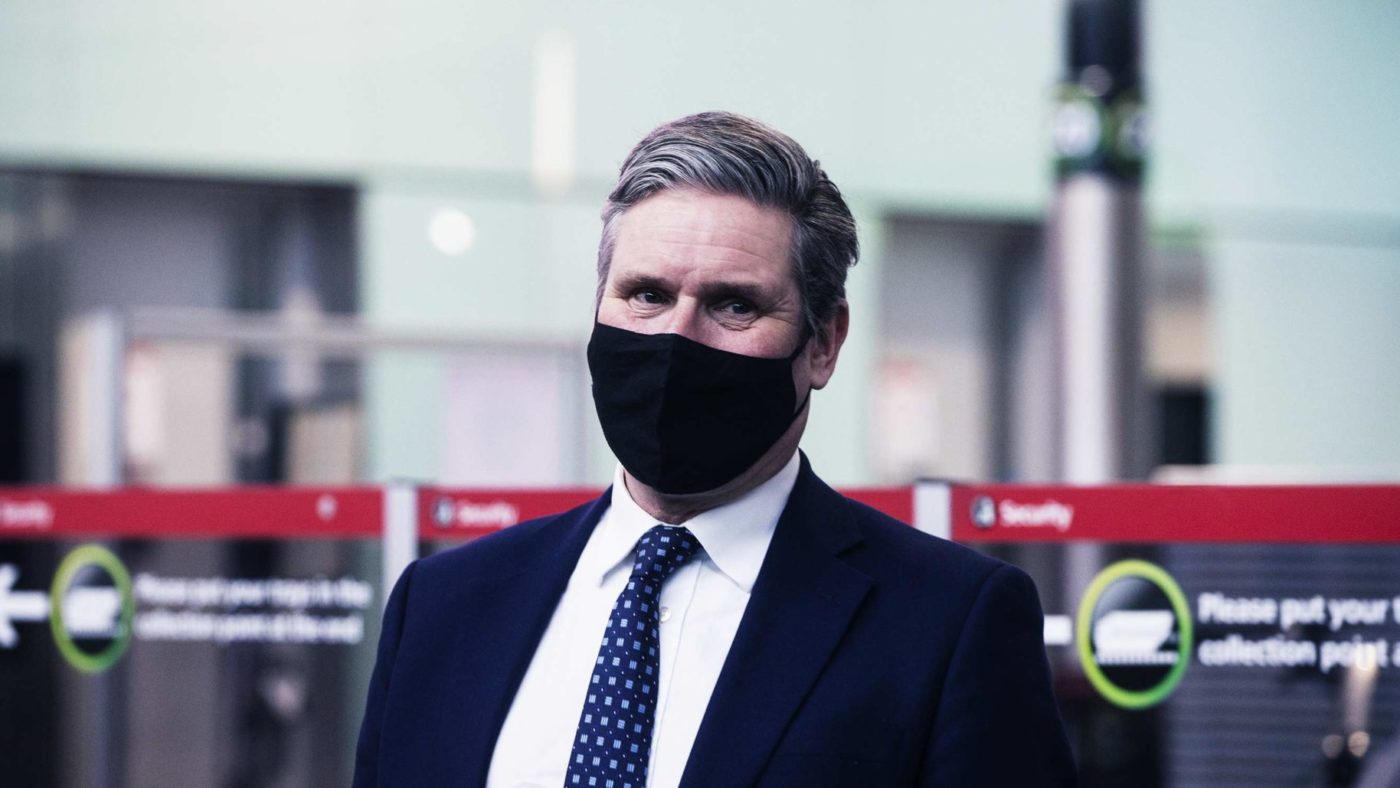Some things in life are inevitable. Death, taxes and mini-comebacks from Peter Mandelson. Yesterday The Sunday Times reported the return of the Prince of Darkness to dispense pearls of election-winning wisdom, just as Keir Starmer’s leadership appears to be hitting the buffers.
There’s no doubt Starmer is in a tight spot. What looked like stolid, cautious professionalism in the early days of his leadership now looks like timid fence-sitting.
In his defence, this is not all Starmer’s fault. His personal ratings are actually pretty decent, especially compared to his immediate predecessors as Labour leader, but the circumstances of Covid mean most of us are far more focused on the next government announcement than what the opposition thinks about anything.
Meanwhile, the gangbusters vaccination programme threatens to supersede the Government’s numerous pandemic blunders. The impression at the moment is of a leader who, though far from a disaster, isn’t really on the political pitch – which seems to be reflected in a small but consistent Conservative poll lead.
In that context, turning to one of the architects of Labour’s greatest electoral successes seems a reasonable enough choice, though it sounds like Mandelson’s role is more sounding board than svengali. That Starmer is talking regularly to Mandelson, Tony Blair and Gordon Brown is probably not a sign that he plans a New Labour 2.0, but that he is serious about doing whatever it takes to get his party back into power.
And although Starmer may have performed underwhelmingly so far, one shouldn’t understate how difficult his task was in the first place. As one shadow cabinet source puts in the Times piece, he has to be Neil Kinnock, John Smith and Tony Blair rolled into one.
In purely arithmetical terms, the opposition leader he most closely resembles is David Cameron, who took the reins as Tory leader in 2005 with just 198 MPs, two shy of Labour’s current total. If history is any sort of guide – and notwithstanding the very altered political landscape – the fact it took Cameron ten years to return a majority Conservative government suggests Starmer will have to be in this for a very long haul.
Time for a ‘policy blitz’?
With that in mind, it’s somewhat puzzling to read about a “policy blitz” speech coming up later this week. On a baldly pragmatic level, whatever he announces, and however dutifully the press write it up, the vast majority of the public are not going to take much notice. The effect is even more diluted if you bring out multiple policies at the same time. That’s not to say there isn’t a place for some concrete commitments – one of the most striking examples was in 2007 when George Osborne spooked Gordon Brown out of an early election by pledging to raise the inheritance tax threshold to £1 million.
The time to start pitching more detailed policies is nearer the next general election, when the question ‘what would Labour do?’ starts to have some resonance. At the moment it all sounds extra hypothetical when we don’t even know when we’ll be able to go down the pub again.
So, if not a ‘blitz’, what should Starmer be doing?
The short answer is, focus on the basics. In the short term, a bit of actual opposition on Covid wouldn’t go amiss. So far, Labour has merely poked holes in the Government’s policies without really questioning the general strategy of perma-lockdown. In doing so Starmer has looked more like a follower than a leader. He could also do with freshening up the front bench, with far too many shadow ministers all but anonymous over the last year.
He should also heed the advice of a much maligned recent report that advised the party to make “use of the flag, veterans [and] dressing smartly”. Though some on the Labour left saw this as some kind of nationalistic pivot, that says more about their own warped outlook than anything. This isn’t jingoism, it’s the the basic stuff of politics: showing the electorate that you take pride in your country and conduct yourself with professionalism, both of which qualities were conspicuously absent under Jeremy Corbyn.
Ultimately the rather prosaic truth may be that Starmer’s political fate is out of his hands. The Government’s mistakes are likely to have much more of an impact on Labour’s political fortunes than anything else. Just look at the car crash of a 2017 Tory campaign for evidence of just how much a governing party can shoot themselves in the foot, even against a miserably incompetent opponent.
And, given that the Conservatives will have been in power for 15 years by the time of the next general election, perhaps his greatest asset is not a New Labour spin doctor or a finely crafted pro-business message, but good, old-fashioned voter fatigue.
Click here to subscribe to our daily briefing – the best pieces from CapX and across the web.
CapX depends on the generosity of its readers. If you value what we do, please consider making a donation.


